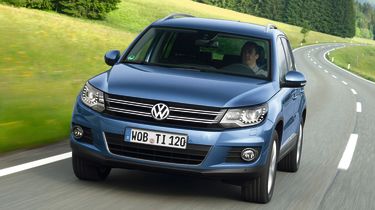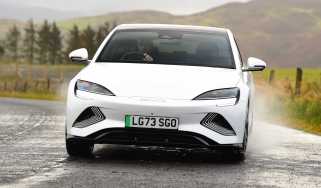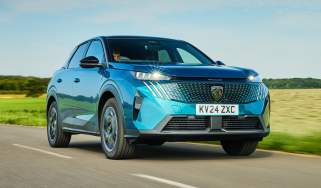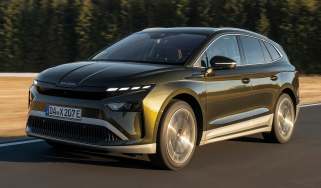Volkswagen Tiguan
Revised Tiguan introduces more efficient engines and boosts popular crossover's well-rounded appeal

A facelifted model normally incorporates a host of mechanical upgrades to accompany the visual ones, but in the Tiguan’s case it really doesn’t need them. Of course, the more efficient engines are very welcome, as are the brand new hi-tech safety gadgets, but this car was already a big seller and its sharp new look and added value for money will ensure the success story continues.
Talk about popular! Such is the Tiguan SUV’s success that VW had to bring forward advanced sales of this facelifted car because the old version had sold out. It proved the right decision, with 1,500-plus pre-orders already taken since the model debuted at March’s Geneva Motor Show. Now it has finally arrived, will all those early adopters be happy?
[[{"type":"media","view_mode":"content_narrow","fid":"69330","attributes":{"alt":"","class":"media-image"}}]]
The Tiguan has been subtly improved rather than overhauled, so there are only small tweaks to the interior, exterior and engines. Visually, its face now apes that of the larger Touareg SUV, with sharper lights, a two-bar grille plus LED tail and daytime running lamps. Elsewhere, there are new alloys and colours including Acapulco Blue and Toffee Brown.
Inside, the steering wheel and air-con controls are taken from the Golf, giving a much more up-to-date feel. The Tiguan’s trademark stacked air-vents remain. The drive is much the same, too: agile, comfortable and with a firm but compliant ride. Raised seating aside it feels like a regular family hatch, and it has plenty of grip and responsive steering. It’s also as practical as ever, boasting a lot of space as well as a 1,510-litre boot with the seats folded.
It’s the engine line-up which has received the biggest boost. We drove the 138bhp 2.0-litre TDI BlueMotion Technology, which claims 50.4mpg and 157g/km CO2 emissions: improvements of 5.6mpg and 32g/km. The greenest option is a 109bhp 2.0-litre two-wheel-drive TDI, which returns 53.3mpg and 139g/km.
There is also a 168bhp variant of this engine, but the 138bhp unit we drove feels punchy enough, with a 10.2-second 0-62mph time and decent in-gear response for overtaking. Petrol fans can choose between a twin-charged 1.4-litre TSI with 121bp or 158bhp, and a 2.0 TSI with 177bhp or 206bhp. VW reckons more than 90 per cent of sales will be oil-burners, though.
The baby SUV also gets a host of new safety gadgets. Buyers can specify an automatic main beam system, lane keep assist, fatigue detection and the latest-generation self-parking system. Despite all the updates, the facelifted Tiguan costs exactly the same as before – adding top value to its already long list of talents.







